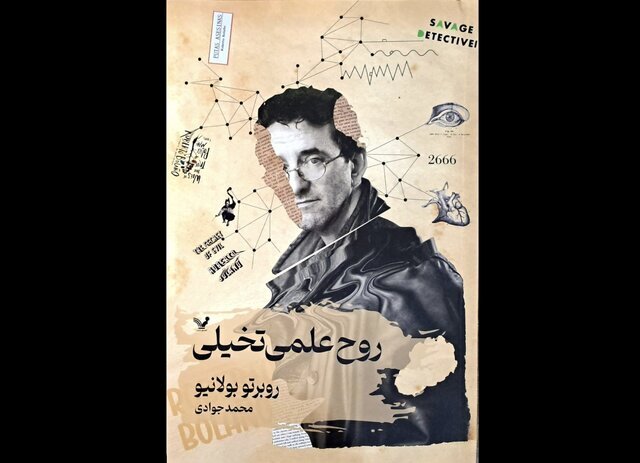Roberto Bolaño’s “The Spirit of Science Fiction” published in Persian

TEHRAN-The Persian translation of the novel “The Spirit of Science Fiction” by Chilean author Roberto Bolaño has hit the bookstores across Iran.
Mohammad Javadi has translated the book that has been published by Ketabsaraye Tandis Publication, ISNA reported.
Written around 1984 and published posthumously, it was published in Spanish in 2016 and in English in 2018.
Although unpublished at his death, “The Spirit of Science Fiction” was one of Bolaño's first completed novels. It is a tale of bohemian youth on the make in Mexico City from a master of contemporary fiction.
The novel is set in Mexico City in the 1970s; the central characters are two young Chilean would-be writers who have emigrated during the Pinochet dictatorship, 17-year-old Jan Schrella and 21-year-old Remo, and Remo's friend José Arco. Jan, a science fiction author and Bolaño's alter ego, sits in the attic they share and writes, much of the time letters to authors he idolizes. Remo, a poet, falls in love with a girl he meets at a poetry workshop, and with Arco, also a poet, quests on the latter's motorbike after Dr. Carvajal, who can explain the simultaneous rise of illiteracy and proliferation of poetry journals in the city.
In addition to Jan's letters, the story is intercut with dreams and with flashforwards to Remo's life after he is successful; Remo also narrates the last section of the novel, “Mexican Manifesto,” a love story that was published on its own in The New Yorker in 2013.
This kaleidoscopic work of strange and tender beauty is a fitting introduction for readers uninitiated into the thrills of Roberto Bolaño's fiction and an indispensable addition to an ecstatic and transgressive body of work.
Roberto Bolaño (1953-2003) was a Chilean novelist, short-story writer, poet and essayist. In 1999, he won the Rómulo Gallegos Prize for his novel “The Savage Detectives,” and in 2008 he was posthumously awarded the National Book Critics Circle Award for Fiction for his novel “2666,” which was described by board member Marcela Valdes as a “work so rich and dazzling that it will surely draw readers and scholars for ages”. The New York Times described him as “the most significant Latin American literary voice of his generation”.
His work has been translated into numerous languages, including English, French, German, Italian, Lithuanian, and Dutch. At the time of his death, he had 37 publishing contracts in ten countries. Posthumously, the list grew to include more countries, including the United States, and amounted to 50 contracts and 49 translations in 12 countries, all of them prior to the publication of “2666,” his most ambitious novel.
In addition, the author enjoys excellent reviews from both writers and contemporary literary critics and is considered one of the great Latin American authors of the 20th century, along with other writers of the stature of Jorge Luis Borges and Julio Cortázar, with whom he is usually compared.
SS/
